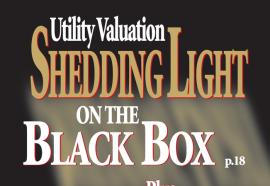Perspective
It is hard tyo foresee abandoning the discounted cash flow method relied upon so heavily for the past couple of decades.
In the Feb. 15, 2003, edition of , Jonathan Lesser says that regulators need to rethink the traditional discounted cash flow (DCF) method for finding the cost of capital, or "at the very least, regulators should no longer rely solely on the DCF to set allowed returns."


